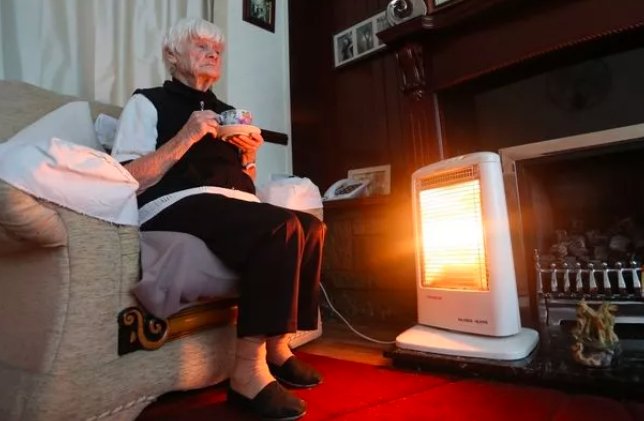Scotland is facing a ‘deep crisis’ as the government’s targets to end fuel poverty by 2040 are at risk of being missed, according to campaigners and experts. The rising energy prices, the cost of living crisis, and the slow progress on green heating and home insulation are putting more pressure on households struggling to pay their bills.
Fuel poverty affects almost a third of Scottish households
Fuel poverty is defined as when a household spends more than 10% of its income on heating and electricity. Extreme fuel poverty is when this figure exceeds 20%. According to the latest Scottish House Condition Survey, fuel poverty rates in Scotland increased to 31% of all households in 2022, of which more than 18% were in extreme fuel poverty. This means that nearly one million households in Scotland are unable to afford adequate heating and lighting for their homes.
The situation is expected to worsen as the energy price cap rises by 12% from October 1, adding an extra £139 to the average annual bill for customers on standard tariffs. The UK Government has announced a one-off £500 million energy bill rebate for low-income households, but this will only cover about £50 per household. The Scottish Government has also pledged an extra £30 million for fuel poverty support, but campaigners say this is not enough to address the scale of the problem.
Green heating and home insulation are key to tackling fuel poverty
The Existing Homes Alliance (EHA), a coalition of housing, environmental, and anti-poverty groups, has warned that the Scottish Government’s targets to end fuel poverty and achieve net zero emissions by 2040 are at risk unless there is an accelerated transition to warm homes and clean heat. The EHA has called for new, fit-for-purpose legislation on heat in buildings, which would set clear standards and timelines for improving the energy efficiency and decarbonisation of Scotland’s housing stock.

The EHA has also urged the Scottish Government to ‘seize the moment’ and use the upcoming budget and the COP26 climate summit to announce a ‘massive scale-up’ of investment and delivery of green heating and home insulation programmes. The EHA estimates that this would require at least £1.8 billion per year of public funding, as well as incentives and regulation to leverage private investment. The EHA claims that this would not only help reduce fuel poverty and emissions, but also create thousands of green jobs, boost the economy, and improve health and wellbeing.
Opposition parties and charities demand more action from governments
The SNP, Scottish Labour, the Scottish Greens, and the Scottish Lib Dems have all criticised the UK Government for its handling of the energy crisis and its impact on fuel poverty. They have called for more financial support for households, as well as measures to reform the energy market and increase the supply of renewable energy. They have also urged the Scottish Government to do more to tackle the root causes of fuel poverty and to ensure that no one is left behind in the transition to net zero.
Several charities and organisations have also expressed their concerns and demands for more action from both governments. The Joseph Rowntree Foundation, Energy Action Scotland, and Citizens Advice Scotland have highlighted the need for more income support, debt advice, and emergency grants for people facing fuel poverty. They have also stressed the importance of long-term solutions, such as improving the quality and affordability of housing, increasing the uptake of energy efficiency measures and low-carbon heating systems, and ensuring that people have access to fair and affordable tariffs.


















